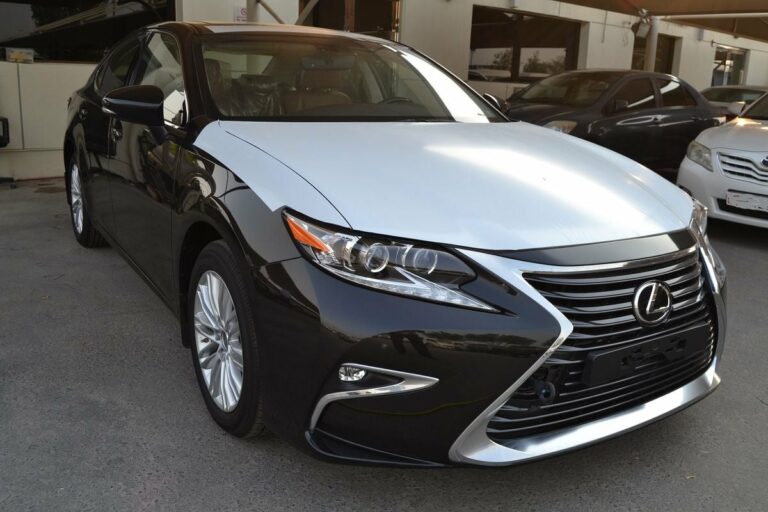Most Popular Japanese Car Brands: A Legacy of Reliability, Innovation, and Value
Most Popular Japanese Car Brands: A Legacy of Reliability, Innovation, and Value cars.truckstrend.com
Japanese automobiles have carved an indelible mark on the global automotive landscape, becoming synonymous with unparalleled reliability, cutting-edge innovation, and exceptional value. From bustling city streets to rugged off-road trails, vehicles from brands like Toyota, Honda, Nissan, and others are ubiquitous, a testament to their enduring popularity and universal appeal. This comprehensive guide delves into the most popular Japanese car brands, exploring what makes them stand out, their key offerings, and why they continue to dominate sales charts worldwide.
The appeal of Japanese cars extends far beyond mere transportation; it’s about a promise of dependable performance, fuel efficiency, and a comfortable, safe driving experience. Their meticulous engineering, stringent quality control, and foresight in adopting new technologies – particularly hybrid and electric powertrains – have cemented their reputation as industry leaders. For consumers globally, choosing a Japanese car often means choosing peace of mind, strong resale value, and a vehicle built to last.
Most Popular Japanese Car Brands: A Legacy of Reliability, Innovation, and Value
The Titans of the Industry: A Closer Look at Popular Japanese Brands
Japanese car manufacturers offer a diverse range of vehicles, from economical subcompacts to luxurious SUVs and high-performance sports cars. While many brands contribute to Japan’s automotive prowess, a few stand out consistently in terms of global popularity and market share.
1. Toyota: The Unrivaled Global Giant
Toyota stands as the undisputed titan of the automotive world, consistently ranking as one of the largest and most valuable car brands globally. Renowned for its legendary reliability, fuel efficiency, and extensive model lineup, Toyota has built an unparalleled reputation for producing vehicles that simply "keep going." Their pioneering work in hybrid technology, spearheaded by the iconic Prius, has set industry benchmarks and continues to drive their innovation in sustainable mobility.
Key Strengths:
- Bulletproof Reliability: Toyota vehicles are famous for their longevity and low maintenance costs.
- Fuel Efficiency: Leading the charge in hybrid technology, many Toyota models offer class-leading fuel economy.
- Diverse Lineup: From the compact Corolla and versatile RAV4 to the rugged Tacoma truck and luxurious Lexus models, Toyota offers something for every need.
- Strong Resale Value: Their reputation for durability translates into excellent retention of value.

Popular Models: Corolla, Camry, RAV4, Highlander, Prius, Tacoma, Tundra, Sienna. Lexus (luxury division) offers premium alternatives like the RX and ES.
2. Honda: Engineering Excellence and Everyday Practicality
Honda has cultivated a loyal following through its commitment to engineering excellence, refined driving dynamics, and clever interior packaging. Known for producing efficient and peppy engines, Honda cars often deliver a more engaging driving experience without compromising on practicality or reliability. Their motorcycles heritage is evident in the precision and performance of their automotive powertrains.
Key Strengths:
- Refined Driving Experience: Honda vehicles often offer a balance of comfort and agility.
- Fuel Efficiency & Performance: Their VTEC engines are known for both power and economy.
- Innovative Features: Honda frequently introduces user-friendly technology and safety features.
- Strong Resale Value: Like Toyota, Honda vehicles maintain their value well over time.
Popular Models: Civic, Accord, CR-V, HR-V, Pilot, Odyssey. Acura (luxury division) provides upscale options like the MDX and TLX.
3. Nissan: Innovation, Accessibility, and Electrification
Nissan distinguishes itself through a blend of bold design, advanced technology, and a focus on accessibility. While facing some challenges in recent years, Nissan remains a significant player, particularly known for its early adoption of electric vehicle technology with the Leaf, one of the world’s best-selling EVs. They offer a wide range of vehicles, often at competitive price points, appealing to a broad spectrum of buyers.
Key Strengths:
- Technology Integration: Early pioneers in EV tech and offering advanced driver-assistance systems.
- Value for Money: Often provides feature-rich vehicles at attractive prices.
- Bold Design: Many Nissan models feature distinctive and modern styling.
- Diverse Portfolio: From compact sedans to full-size trucks and innovative EVs.
Popular Models: Sentra, Altima, Rogue, Pathfinder, Titan, Frontier, Kicks, Leaf. Infiniti (luxury division) offers models like the Q50 and QX60.
4. Subaru: All-Wheel Drive and Adventurous Spirit
Subaru has carved out a unique niche, primarily appealing to consumers seeking all-wheel-drive capability, robust safety features, and an adventurous lifestyle. Their signature Boxer engines and Symmetrical All-Wheel Drive system provide excellent balance and traction, making them popular in regions with challenging weather or for those who enjoy outdoor activities. Subaru also boasts a fiercely loyal customer base, often citing the brand’s commitment to safety and environmental responsibility.
Key Strengths:
- Standard All-Wheel Drive: Nearly all models come with Subaru’s renowned Symmetrical AWD.
- Exceptional Safety: Consistently earns top safety ratings from organizations like the IIHS.
- Outdoor Capability: Built to handle diverse terrains and weather conditions.
- Brand Loyalty: Known for fostering a strong community among its owners.
Popular Models: Outback, Forester, Crosstrek, Impreza, Ascent, WRX.
5. Mazda: Driving Dynamics and Premium Appeal
Mazda has successfully transitioned its brand image from "Zoom-Zoom" fun to a more sophisticated, near-premium feel, without abandoning its driver-centric philosophy. Through its "Kodo" design language and Skyactiv technology, Mazda offers vehicles that are not only aesthetically pleasing but also deliver an engaging and refined driving experience. Their interiors often rival luxury brands in terms of materials and craftsmanship, making them an excellent value proposition.
Key Strengths:
- Engaging Driving Dynamics: Focus on driver connection and balanced handling.
- Upscale Interiors: High-quality materials and thoughtful design create a premium cabin experience.
- Elegant Design: "Kodo" design language results in visually striking vehicles.
- Skyactiv Technology: Optimizes engines, transmissions, chassis, and body for efficiency and performance.
Popular Models: Mazda3, Mazda6, CX-5, CX-30, CX-50, MX-5 Miata.
6. Mitsubishi: Resilience and Utility
Mitsubishi, while having faced challenges in some major markets, continues to be a popular choice globally, particularly in Southeast Asia and other emerging markets. The brand is known for its rugged SUVs and crossovers, often offering competitive warranties and value-oriented pricing. Their renewed focus on utility vehicles and plug-in hybrid technology (like the Outlander PHEV) signals a strategic shift towards relevant market segments.
Key Strengths:
- Value and Affordability: Often offers feature-packed vehicles at accessible price points.
- Long Warranty: Competitive warranty periods provide peace of mind.
- PHEV Technology: A leader in accessible plug-in hybrid SUVs.
- SUV/Crossover Focus: Strong lineup in popular utility vehicle segments.
Popular Models: Outlander, Outlander Sport (ASX), Mirage.
7. Suzuki: Compact Efficiency (Global Presence)
While no longer selling cars in North America, Suzuki remains a hugely popular brand in many parts of the world, especially in India, Southeast Asia, and parts of Europe. Renowned for its compact, fuel-efficient, and affordable vehicles, Suzuki excels in urban environments and emerging markets where practicality and low running costs are paramount. They also maintain a strong global presence in motorcycles and marine engines.
Key Strengths (Global):
- Compact & Agile: Excellent for urban driving and tight spaces.
- Fuel Efficiency: Designed for maximum economy.
- Affordability: Offers some of the most budget-friendly options.
- Reliability: Simple, robust engineering contributes to durability.
Popular Models (Global): Swift, Vitara, Jimny, Baleno.
Factors Contributing to Their Enduring Popularity
The sustained success of Japanese car brands is not accidental. It stems from a combination of strategic advantages and consumer-centric philosophies:
- Reliability and Durability: This is arguably the cornerstone of their appeal. Japanese manufacturers invest heavily in quality control, resulting in vehicles that require fewer repairs and last longer.
- Fuel Efficiency: With a global focus on reducing emissions and fuel consumption, Japanese brands have consistently led the way, particularly with their hybrid technologies.
- Innovation and Technology: From advanced safety features (like Toyota Safety Sense, Honda Sensing) to sophisticated infotainment systems and pioneering EV/hybrid powertrains, they are at the forefront of automotive tech.
- High Resale Value: Due to their reputation for reliability and longevity, Japanese cars typically command higher resale prices, making them a wise long-term investment.
- Diverse Model Lineups: They offer a vast array of vehicles, ensuring there’s a suitable option for almost any buyer’s need or budget.
- Strong Dealer Networks and After-Sales Service: An extensive network of dealerships and readily available parts contribute to a hassle-free ownership experience.
Practical Advice for Potential Buyers
Considering a Japanese car? Here’s some actionable advice to guide your decision:
- Assess Your Needs: Determine your primary requirements: budget, vehicle size, fuel economy, cargo space, AWD needs, and desired features.
- Research Specific Models: While brand reputation is strong, individual models within a brand can vary. Read reviews, compare specifications, and watch video tests.
- Consider New vs. Used: Japanese cars hold their value well, so a slightly used model can offer significant savings without sacrificing much on reliability.
- Test Drive Thoroughly: Don’t just take it around the block. Drive on highways, city streets, and even rougher roads if that’s typical for you. Pay attention to comfort, handling, and visibility.
- Check Safety Ratings: Consult independent organizations like the IIHS (Insurance Institute for Highway Safety) and NHTSA (National Highway Traffic Safety Administration) for crash test results and safety feature evaluations.
- Factor in Total Cost of Ownership: Beyond the purchase price, consider insurance, maintenance, and fuel costs. Japanese cars generally excel in lower overall ownership costs.
Challenges and Future Considerations
Even with their dominance, Japanese car brands face evolving challenges. The accelerating transition to electric vehicles globally demands significant investment and rapid innovation to maintain leadership. Competition from emerging Chinese EV manufacturers and established European and Korean brands is intensifying. Furthermore, supply chain disruptions and global economic shifts continue to test their resilience. However, their proven adaptability, strong engineering base, and commitment to quality position them well for future success.
Overview of Popular Japanese Car Brands & Typical Price Ranges
The following table provides a general overview of the most popular Japanese car brands, their key models, and typical price ranges. Please note that prices are approximate and can vary significantly based on trim level, optional features, location, and market conditions. Prices are generally presented as Manufacturer’s Suggested Retail Price (MSRP) for new vehicles in USD.
| Brand | Key Models | Typical Price Range (MSRP, USD) | Key Strengths |
|---|---|---|---|
| Toyota | Corolla, Camry, RAV4, Highlander, Prius, Tacoma, Tundra | $22,000 – $60,000+ | Unmatched Reliability, High Resale, Hybrid Tech, Diverse Lineup |
| Honda | Civic, Accord, CR-V, HR-V, Pilot, Odyssey | $23,000 – $50,000+ | Driving Dynamics, Fuel Efficiency, Refinement, Smart Design |
| Nissan | Sentra, Altima, Rogue, Pathfinder, Kicks, Leaf | $21,000 – $55,000+ | Value for Money, Advanced Tech, EV Leadership, Bold Styling |
| Subaru | Impreza, Outback, Forester, Crosstrek, Ascent, WRX | $24,000 – $45,000+ | Standard AWD, Top Safety, Outdoor Capability, Brand Loyalty |
| Mazda | Mazda3, CX-5, CX-30, CX-50, MX-5 Miata | $23,000 – $40,000+ | Engaging Driving, Premium Interiors, Elegant Design, Efficiency |
| Mitsubishi | Mirage, Outlander, Outlander Sport | $18,000 – $40,000+ | Affordability, Long Warranty, PHEV Options, Utility |
| Suzuki | Swift, Vitara, Jimny (Global Only) | $15,000 – $30,000+ (Global) | Compact, Fuel-Efficient, Value (not in North America) |
Note: Luxury divisions like Lexus (Toyota), Acura (Honda), and Infiniti (Nissan) offer higher-end models with significantly higher price points.
Frequently Asked Questions (FAQ)
Q1: Why are Japanese cars considered so reliable?
A1: Japanese manufacturers prioritize rigorous quality control, lean manufacturing processes (like the Toyota Production System), and continuous improvement. Their engineering focuses on durability and simplicity, leading to fewer mechanical issues over time.
Q2: Do Japanese cars have good resale value?
A2: Yes, generally, Japanese cars boast some of the best resale values in the market. Their reputation for reliability and longevity means they remain desirable as used vehicles, commanding higher prices.
Q3: Which Japanese brand is best for fuel efficiency?
A3: Toyota, especially with its extensive hybrid lineup (Prius, Camry Hybrid, RAV4 Hybrid), often leads in fuel efficiency. Honda also offers very efficient conventional and hybrid powertrains across its range.
Q4: Are there luxury Japanese car brands?
A4: Absolutely. Toyota owns Lexus, Honda owns Acura, and Nissan owns Infiniti. These luxury divisions offer premium vehicles with advanced features, sophisticated designs, and higher levels of comfort and performance.
Q5: Are Japanese cars expensive to maintain?
A5: Generally, no. Japanese cars are known for their lower maintenance costs compared to many European or domestic brands. Parts are usually readily available and often more affordable, and their inherent reliability means fewer unexpected repairs.
Q6: What are the safest Japanese car brands?
A6: Toyota, Honda, and Subaru consistently rank very highly in safety tests conducted by organizations like the IIHS and NHTSA. Many of their models come standard with comprehensive suites of advanced driver-assistance systems.
Conclusion
The popularity of Japanese car brands is a phenomenon built on decades of consistent performance, unwavering quality, and a keen understanding of consumer needs. From Toyota’s bulletproof reliability to Honda’s engineering finesse, Nissan’s innovative spirit, Subaru’s adventurous capability, and Mazda’s premium feel, these brands offer a compelling blend of attributes. They represent a smart, dependable choice for millions of drivers worldwide, promising not just a mode of transport, but a reliable companion for the journey ahead. As the automotive industry evolves, Japanese manufacturers are poised to continue their legacy of innovation, adapting to new technologies and maintaining their esteemed position at the forefront of the global market.



